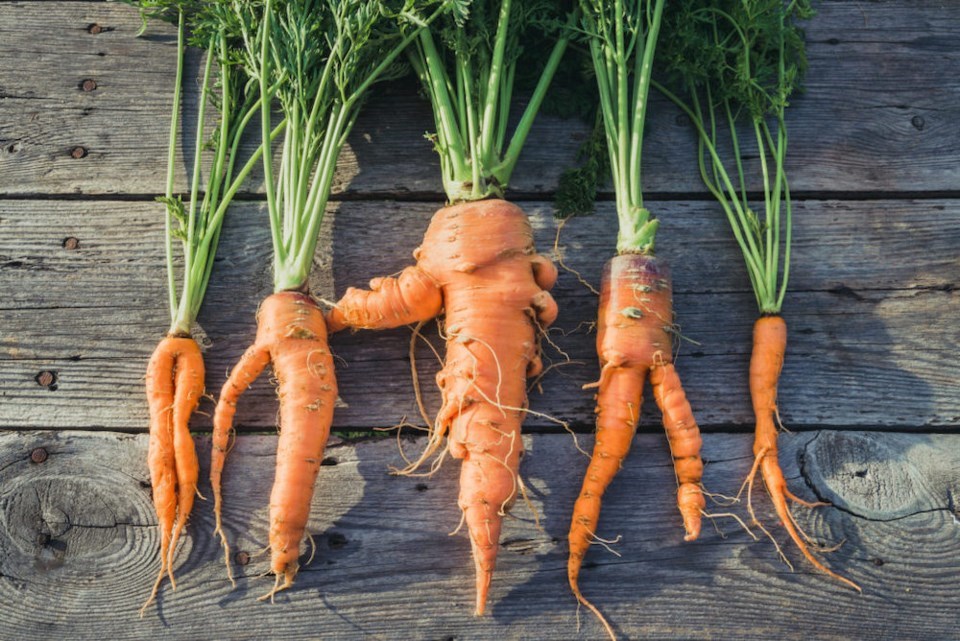Do you scrutinize the way your prospective produce looks?
People don't reserve judgment on physical appearance to themselves and other people.
South of the border, farmers in the United States throw away up to 30 per cent of their crops annually because of cosmetic imperfections.
But it isn't all bad news for imperfect peppers, lumpy carrots, and unattractive tomatoes.
According to new research from the University of British Columbia Sauder School of Business, calling vegetables and fruits "ugly" can be a recipe for sales success.
"In 2014, French supermarket chain Intermarché garnered international headlines when it began marketing misshapen produce as “ugly,” and since that time, food retailers around the world have launched campaigns to sell “imperfect produce” or “produce with personality," explains a news release.
Until now, however, researchers hadn't been able to discern why some consumers would reject imperfect produce, while others were happy to add misshapen veggies to their grocery bills.
Labelling vegetables 'ugly'
Researchers at UBC Sauder conducted seven studies that tested the efficacy of ‘ugly’ labelling (describing the unattractive produce as ‘ugly’) by having participants purchase produce at a farmers market and online, and by examining people’s preconceptions about misshapen foods.
Interestingly, they found that consumers expected the imperfect produce to be less tasty and even less nutritious than more traditionally attractive foods.
“People attach a beauty premium to attractive objects, and believe they have all kinds of positive attributes. Likewise, there’s often an ugliness penalty effect, which negatively impacts perceptions of objects,” says UBC Sauder PhD student Siddhanth Mookerjee, who co-authored the new study, From Waste to Taste: How “Ugly” Labels Can Increase Purchase of Unattractive Produce, along with UBC Sauder Assistant Professor Dr. Yann Cornil and UBC Sauder Associate Professor Dr. JoAndrea Hoegg.
“We found that people also use appearance to judge unattractive produce and make these negative inferences, even though there’s no factual reason to believe it will be less tasty or less healthy.”
When the produce is labelled “ugly,” researchers found that consumer hesitancy disappears. Calling items “ugly” signals to consumers that the only difference between items is aesthetic, explains Mookerjee, which makes them aware of their bias and significantly increases their willingness to buy the less attractive produce.
A sweet spot for discounting 'ugly' veggies
The researchers tested their hypothesis with multiple field studies, including one at a local farmers' market where they sold both attractive and unattractive tomatoes, carrots and potatoes. They not only found customers spent more on the misshapen produce when it was labelled “ugly,' but they also spent more on that produce than they did on the conventionally beautiful foods.
The ugly produce was sold at a 25 per cent discount, but it turned out to be more profitable for sellers, as the cost of acquiring the ugly produce was lower.
With this in mind, researchers say there's a sweet spot when it comes to discounting ugly produce. If the price reduction was too steep – 60 per cent rather than 20 per cent – participants expected the “ugly” foods to be of low quality.
Labelling was also important, as researchers found that using words such as "imperfect" was less effective. Consumers were more likely to click through on ads for "ugly" produce.



